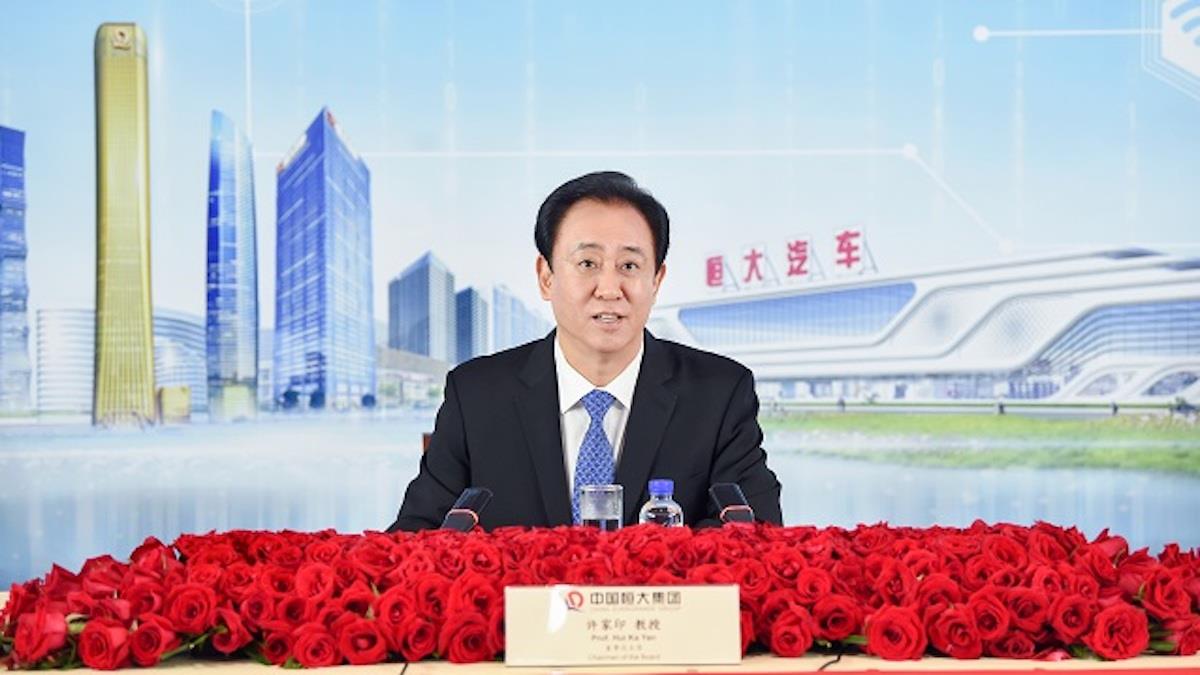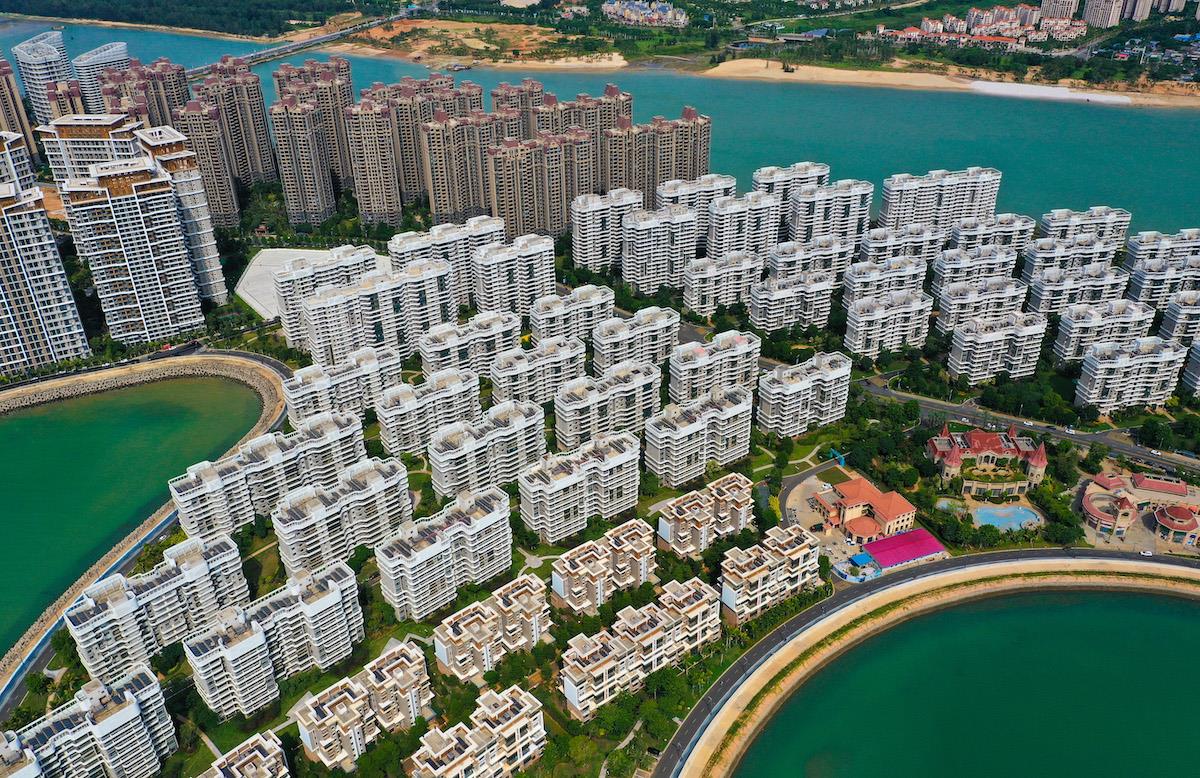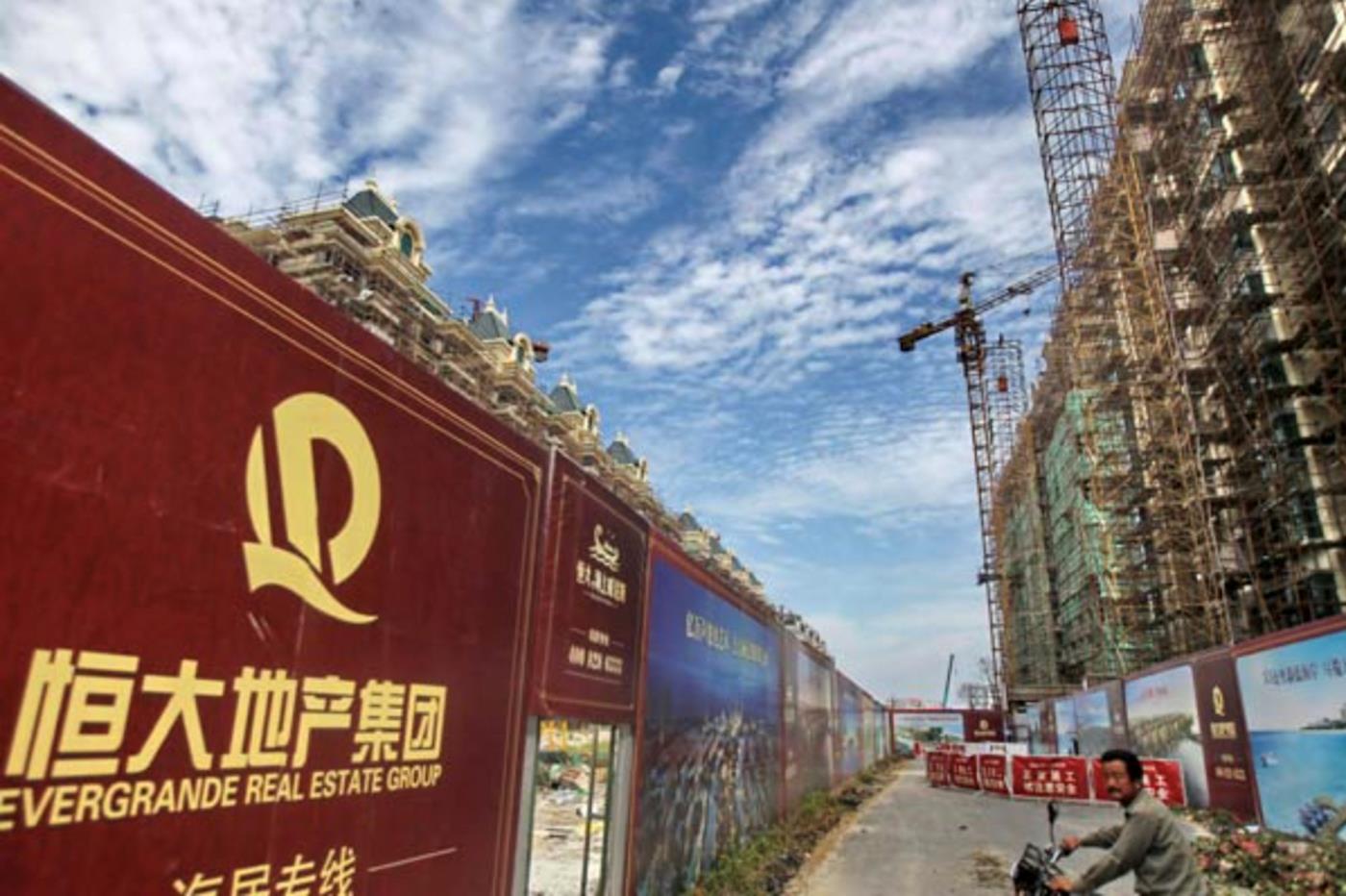(MENAFN- Asia Times) Evergrande Group, China's second-largest property developer by contracted sales, saw its share price fall by as much as 11% on Thursday on the news the beleaguered company's debts had been further downgraded by credit rating agencies.
The world's most indebted property developer's financial situation has not improved since group founder Hui Ka-yan stepped down as chairman of the company's flagship Hengda Real Estate Group unit on August 16 after its contracted sales declined by 26% last month year-on-year.
Analysts said Beijing might provide assistance to the debt-ridden company in the fourth quarter but would likely adopt a“market-oriented” approach. They said investors were worried that Evergrande's crisis could spill over into other Chinese property developers and create systemic risks in China's wider banking system.
On Tuesday, Moody's downgraded the corporate family rating (CFR) of Evergrande from“Caa1” to“Ca” and the developer's senior unsecured ratings from“Caa2” to“C.” It also downgraded the CFRs of Evergrande subsidiaries Hengda Real Estate Group, Tianji Holding Ltd, and the backed senior unsecured ratings of Scenery Journey Limited.
According to Moody's ratings,“Ca” refers to“default imminent with little prospect for recovery” while“C” refers to“in default.”
Moody's said Evergrande's unrestricted cash on hand of 86.8 billion yuan (US$13.45 billion) as of the end of June in 2021 was not sufficient to cover its short-term debt and maturing long-term debt over the next 12 months. It said the company would unlikely be able to raise sufficient new funds for refinancing given its deteriorated access to onshore and offshore funding markets.
“The downgrades reflect the weak recovery prospects of Evergrande's creditors if there is a default,” said Cedric Lai, a Moody's vice president and senior analyst.

Xu Jiayin, chairman of Evergrande Group Photo: Evergrande.com
On Wednesday, Fitch Ratings said it too had downgraded the long-term foreign-currency issuer default ratings (IDR) of China Evergrande Group and its subsidiaries Hengda Real Estate Group and Tianji Holding Limited, from“CCC+” to“CC.”
It said Evergrande could default on its borrowings as it failed to mitigate its liquidity issues by vigorously promoting sales, extending loans, disposing of assets or introducing new investors in the first half of this year. According to Fitch's ratings,“CC” refers to“default imminent with little prospect for recovery.”
“We believe the recent drop-off in contracted sales has weakened Evergrande's ability to repay short-term debt, since contracted sales proceeds are its key source of liquidity,” said Samuel Hui, director and primary rating analyst at Fitch (Hong Kong) Ltd.
On September 3, Evergrande said its contracted sales in August fell to 38.08 billion yuan, including the amounts offset through the sales of property units to suppliers and contractors, which were down 26% from 51.48 billion yuan in the same period of 2020.
Contracted sales area increased to 5.34 million square meters from 5.32 million square for the period, meaning that the average sales price fell 26.3% to 7,130 yuan from 9,669 yuan per square meter.
Despite the downgrade, Evergrande's shares rose 3.9% to close at HK$3.71 on Wednesday. However, the shares fell to HK$3.35 on Thursday morning, below its initial public offer price of HK$3.5 in 2009. They closed 4.31% down at HK$3.55 on Thursday from Wednesday.
Prior to this, Hong Kong media reported on Thursday that Evergrande's vice president Xia Haijun had arrived in Hong Kong and would consult related parties about setting up a creditors committee at the request of the Guangdong provincial government.
Since a plan to get listed in the A-share market through a back-door listing was scrapped last year, Evergrande has faced a huge challenge to replenish its cash flow due to its high gearing ratio. Beijing has told banking regulators that they should closely monitor all property loans and prevent them from flowing irregularly into the property market.
Last September, mainland media reported that Evergrande had sent a letter to the Guangdong government seeking help with its debt problems. It said in the letter a failure to resolve the problems could cause systemic risks to the banking system. Strategic investors later agreed to give up the redemption of the loans they offered to Evergrande in exchange for ordinary shares.
On August 26 this year, Yicai.com reported that Hui and key management had recently moved from Shenzhen to Guangzhou in order to communicate with officials at the provincial capital's state-owned Assets Supervision and Administration Commission (SASAC ) on a daily basis.
It said state-owned enterprises including Guangzhou City Construction Investment Group and Yuexiu Property Co Ltd had started taking over Evergrande's assets, including a football court and related properties in Guangzhou and a commercial building in Hong Kong.

Ocean Flower Island, an artificial archipelago off the north coast of Danzhou in Hainan, was built by the Evergrande Group. Photo: AFP
The central government asked Guangdong officials to resolve Evergrande's debt matter with a“market-oriented” approach, financial intelligence provider REDD reported on August 21.
Evergrande planned to suspend interest payments due on loans to two banks on September 21, REDD reported on Wednesday, citing sources briefed by bankers. Evergrande's spokesperson told mainland media on Wednesday that the company had no plan to relocate to Guangzhou.
Tse kay-chung, a co-director and a property analyst at the Bocom International Securities Limited, said it remained unclear whether the central government had already intervened in Evergrande's debt matter. Tse said if Beijing did not offer help, Evergrande's unfinished properties would have to be abandoned, resulting in a huge negative impact on China's property markets and banking system.
Tse said it was likely that the central government would announce a debt-restructuring plan for Evergande in the fourth quarter, either by changing the developer into a state-owned enterprise or liquidating its assets.
Some Chinese property developers have already been affected by Evergrande's issues.

Last Friday, Guangzhou R & F Properties was downgraded to B2 from B1 by Moody's as the company faced increased refinancing risks due to its weakened access to offshore funding in the face of upcoming debt maturities.
R & F Properties (HK) Co Ltd has been downgraded to B3 from B2 due to the weakened support from the parent. Moody's said the rating of R & F had been placed under review for further downgrade. A rating between“B1” and“B3” refers to“highly speculative.”
Media reports said on Wednesday that the private banking units of Citigroup and Credit Suisse Group had stopped accepting the bonds of Fantasia Holdings Group as collateral due to the worsening financial situation of the Shenzhen-based property developer.
On Thursday, shares of R & F Properties fell 3.7% at HK$5.7 while shares of Fantasia decreased 4.5% at 63 HK cents. China Aoyuan Group declined 8.5% at HK$4.2 while Greentown China Holdings dropped 7.2% at HK$11.42.
As of September 5, a total of 274 property developers, mostly small and micro-sized firms, had gone bankrupt in China this year, meaning that a developer collapsed every day, The Time Weekly, a state-owned magazine under the Guangdong Publishing Group, reported on Monday.
Citing China Index Academy research, the report said it was unlikely that banking regulators would increase property loans to developers in the second half of this year. It said property developers had to accelerate their sales and replenish capital by themselves.
Read: Evergrande suffers second downgrade in two days
Read: Evergrande default fears spread to HK banks
MENAFN09092021000159011032ID1102768985